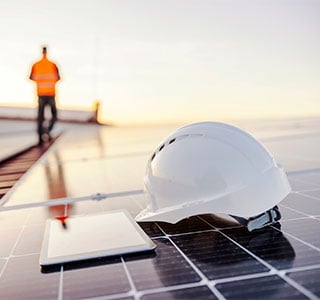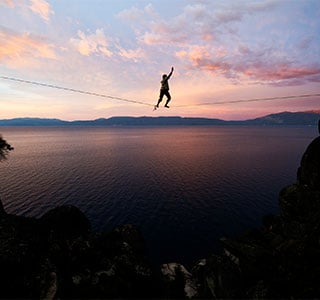-
Compliance and audit reviews
From mandates, best practice procedures or accreditations, to simply gaining peace of mind, our technical and industry experts have you covered.
-
External audit
Strengthen business and stakeholder confidence with professionally verified results and insights.
-
Financial reporting advisory
Deep expertise to help you navigate New Zealand’s constantly evolving regulatory environment.
-
Corporate tax
Identify tax issues, risks and opportunities in your organisation, and implement strategies to improve your bottom line.
-
Indirect tax
Stay on top of the indirect taxes that can impact your business at any given time.
-
Individual tax
Preparing today to help you invest in tomorrow.
-
Private business tax structuring
Find the best tax structure for your business.
-
Tax disputes
In a dispute with Inland Revenue or facing an audit? Don’t go it alone.
-
Research & development
R&D tax incentives are often underused and misunderstood – is your business maximising opportunities for making claims?
-
Management reporting
You’re doing well, but could you be doing even better? Discover the power of management reporting.
-
Financial reporting advisory
Deep expertise to help you navigate New Zealand’s constantly evolving regulatory environment.
-
Succession planning
When it comes to a business strategy that’s as important as succession planning, you can’t afford to leave things to chance.
-
Trust management
Fresh perspectives, practical solutions and flexible support for trusts and estate planning.
-
Forecasting and budgeting
Prepare for every likely situation with robust budgeting and forecasting models.
-
Outsourced accounting services
An extension of your team when you need us, so you can focus your time, energy and passion on your business.
-
Setting up in New Zealand
Looking to set up a business in New Zealand? You’ve come to the right place.
-
Policy reviews & development
Turn your risks into strengths with tailored policies that protect, guide and empower your business.
-
Performance improvement
Every business has untapped potential. Unlock yours.
-
Programme & project management
Successfully execute mission-critical changes to your organisation.
-
Strategy
Make a choice about your vision and purpose, where you will play and how you will win – now and into the future.
-
Risk
Manage risks with confidence to support your strategy.
-
Cloud services
Leverage the cloud to keep your data safe, operate more efficiently, reduce costs and create a better experience for your employees and clients.
-
Data analytics
Use your data to make better business decisions.
-
IT assurance
Are your IT systems reliable, safe and compliant?
-
Cyber resilience
As the benefits technology can deliver to your business increases, so too do the opportunities for cybercriminals.
-
Virtual asset advisory
Helping you navigate the world of virtual currencies and decentralised financial systems.
-
Virtual CSO
Security leadership and expertise when you need it.
-
Debt advisory
Raise, refinance, restructure or manage debt to achieve the optimal funding structure for your organisation.
-
Financial modelling
Understand the impact of your decisions before you make them.
-
Raising finance
Access the best source of funding for your business with a sound business strategy and rigorous planning.
-
Business valuations
Valuable decisions require valued insights.
-
Complex and international services
Navigate the complexities of multi-jurisdictional insolvencies.
-
Corporate insolvency
Achieve fair and orderly outcomes if your business – or part of it - is facing insolvency.
-
Independent business review
Is your business viable today? Will it be viable tomorrow? Give your business a health check to find out.
-
Litigation support
Straight forward advice from trusted advisors to support litigation and arbitration matters, expert determinations and other specialist hearings.
-
Business valuations
Valuable decisions require valued insights.
-
Forensic accounting & dispute advisory
Understand the true values, numbers and dollars at stake, as well as your obligations and rights to ensure value is preserved and complexities are managed.
-
Expert witness
Our expert witnesses analyse, interpret, summarise and present complex financial and business-related issues which are understandable and properly supported.
-
Investigation services
A fast and customised response when misconduct occurs in your business.

Using tax as a tool to achieve a circular economy
In our 2022 report The Circular Revolution, we called for taxation measures to penalise high emitters and those contributing the most to landfill. Environmental taxes are effective and used widely across the globe to encourage the shift to a more circular economy – one where we redesign, reuse and recycle wherever possible.
One approach has been proposed by The Ex’Tax Project, which puts forward the idea of a ‘taxshift’. Put simply, it wants to tax pollution, not people. It says moving the tax burden from labour to pollution and resource use would be fairer for everyone. Having run the numbers, the Ex’Tax group forecasts the shift would be budget-neutral, while boosting EU GDP by 1.6% and employment levels by 3%, alongside a fall in carbon emissions of 7.1%. Meanwhile, those on the lowest two income quintiles grow their real income by 4% and those on the highest three income quintiles are up by 1%.
It’s pretty compelling reading and it demonstrates creative thinking and the right taxation could have benefits for everyone: Sustainability, higher incomes, less pollution and a more resilient economy. It would be fantastic to see some of that thinking in Budget 2023.
A trading platform where you can sell your energy rations
We can only generate so much power, and yet our demand for energy is seemingly bottomless. How do we divvy out power so that it’s fair? I believe we need an energy trading platform – and New Zealand is the perfect place to lead the world in creating and launching one.
The idea of tradable energy quotas (TEQs) has been around for decades. Each individual and business gets their own fossil fuel ‘ration’, a bit like a digital currency. When you buy fossil fuels, you pay in cash and you also spend some of your TEQ budget. If you are a low user of fossil fuels, you can sell them to someone else over the platform. As researcher and activist Deirdre Kent puts it: “Buying and selling is as easy as topping up a mobile phone or Snapper or HOP card for bus trips.”
Energy is perhaps the most valuable physical resource we have, and we should be allocating it as equitably as possible. Why shouldn’t you be rewarded if you aren’t using fossil fuels? And, if a billionaire wants to buy a private jet and keep filling it with fuel, they can pay the rest of us for the privilege.
New Zealand is ideally placed to launch a TEQ platform. We have a small economy that can lead the way on this type of tech, we have had digital payment platforms for decades and with open banking we could deliver rapidly a platform that securely integrates with your banking apps.
A TEQ platform would disincentivise fossil fuel use and incentivise zero-emissions transport. This is vital, because we’re stuck in a vicious cycle of continuously using more energy to create more energy generation, and always losing efficiency. It doesn’t matter how many wind farms we build or how many batteries we invent, using less energy would have enormous advantages for our economy and our environment. Often the most sustainable choice is making better use of what you already have.
I would love to see Grant Robertson announce a TEQ scheme in the Budget as it would massively accelerate New Zealand’s ability to reach our ‘net zero by 2050’ carbon emissions target.
Making money for green projects, not houses
I’d also like to see the Government thinking about how money is created. Broad money creation occurs through bank lending, almost always for houses. We’re effectively creating money simply to churn it into a damaging cycle of ever-higher house prices, notwithstanding the odd dip like we’re experiencing now. Instead, why not create money in the first instance for lending to green projects, before that money goes into circulation to buy houses? It’s a big idea, but the flow of money is the lifeblood of the economy, and making it serve a green purpose first could transform sustainability in Aotearoa.
Ask your kids what the Budget priorities should be
I know asking for major tax changes and spending when we’re potentially heading for an economic downturn is unrealistic. But why should it be? Taking a short-sighted approach to national spending is sacrificing the future of our country and our children. We don’t need to see sustainability choices as a ‘nice to have if you can afford it’ option. That’s a false choice. Ask your children how they would like to see our money being spent, and they’ll tell you this isn’t a choice, it’s an imperative.




